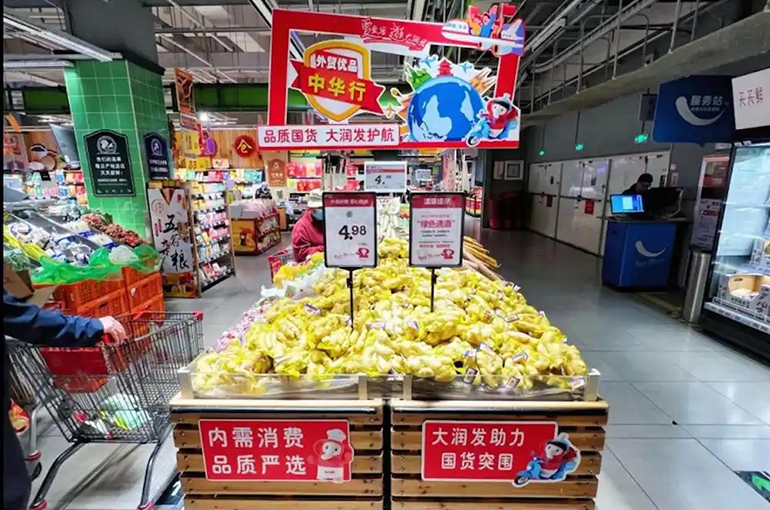 Chinese Foreign Trade Firms Shift to Domestic Sales, European Market Amid US Tariff Hikes
Chinese Foreign Trade Firms Shift to Domestic Sales, European Market Amid US Tariff Hikes(Yicai) April 17 -- More and more Chinese foreign trade businesses have redirected their products to the domestic market and foreign markets other than the United States to contain the impacts of the US “reciprocal tariff” policy.
“As a company primarily focused on foreign trade, we can feel the uncertainties brought to our export business by tariffs, higher shipping costs, and exchange rate fluctuations,” Zhang Ning, business manager at leading Chinese tuna processing firm Ningbo Today Food, told Yicai.
“We have been in contact with Chinese supermarket chains, hoping to reach more local outlets and gradually shift to domestic sales,” Zhang noted, adding that after the transformation, he hopes the company’s domestic business will account for half of the total.
“About 70 percent of our business comes from exports now, mainly to America, Europe, and the Middle East, with the remaining 30 percent coming from domestic online and offline sales channels,” Zhang explained. “We have gradually reduced our exports to the US in the past few years to limit the impact of tariffs.”
Qingdao Liti Agricultural Products, a Chinese firm exporting ginger to the US and Southeast Asia, has begun selling products in 52 RT-Mart stores in cities such as Beijing, Jinan, and Tianjin. On April 15, the first day Liti’s products hit RT-Mart’s shelves, the company’s sales in northern China soared six-fold to 1.2 million tons from its previous daily average.
Chinese online retailers and major brick-and-mortar supermarket chains, including RT-Mart and Bravo YH, have launched initiatives to help exporters impacted by big US tariffs sell their products domestically.
For example, RT-Mart now provides free sales channels to exporters passing the review process, has opened a special cloud roadshow section for export firms to help them increase the exposure of their products, and has added a streamlined green registration channel for interested exporters.
“Yiwu Hongsheng Toy Factory mainly exports to the Middle East, South America, Russia, Europe, Africa, and some countries along the Belt and Road Initiative, so its business will not be affected by the policy changes in one country,” said Sun Lijuan, owner of the toy maker at Yiwu International Trade City in Yiwu, known as the world’s capital of small commodities.
“Moreover, even if we had products exported to the US, we would have adjusted our business direction in a timely manner to export to the European Union and other countries and regions,” Sun noted.
Yiwu’s foreign trade value with BRI countries soared over 18 percent to CNY343.8 billion (USD47 billion) in the first 10 months of last year from a year earlier, accounting for more than 61 percent of the Chinese city’s total import and export value, according to data from Yiwu Customs.
Based on the diversification of the Yiwu International Trade Market’s export structure and the outstanding reliance on its supply chain, the US “reciprocal tariff” policy will not have a big impact on Yiwu’s overall business and exports, according to Zhejiang China Commodities City Group, the operator of the market.
Editor: Futura Costaglione